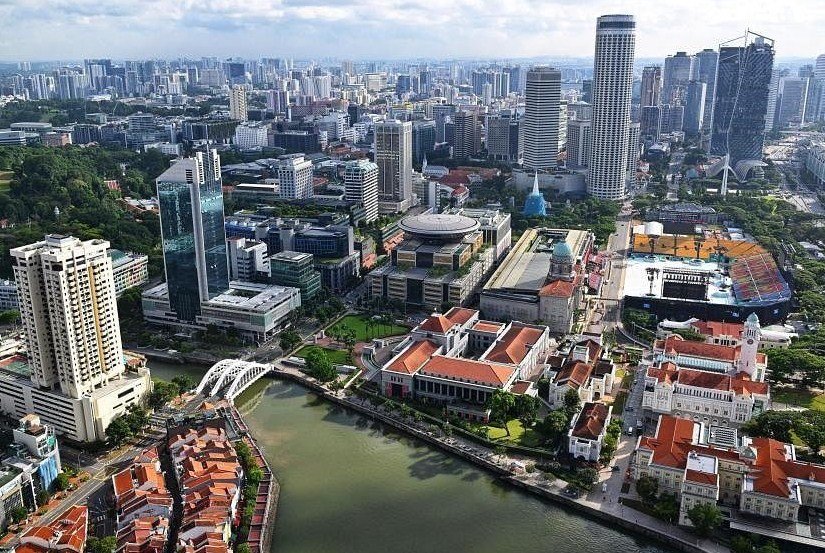Singapore’s banking sector is undergoing a major revamp after a S$2.4 billion (US$1.8 billion) money laundering scandal involving several banks and individuals with foreign passports. The scandal has exposed the loopholes in the city-state’s anti-money laundering policies and prompted the authorities to step up their oversight and scrutiny of the financial institutions and their clients.
The scandal that rocked the financial hub
The money laundering scandal came to light in August 2023, when the Singapore police arrested 10 individuals, all holding Chinese passports, for their involvement in a syndicate that laundered illicit funds through various channels, including banks, real estate agents, precious metal dealers, and even golf clubs. The police also seized assets worth S$240 million (US$178 million), including luxury properties, gold bars, designer handbags, and cash.
The syndicate allegedly used shell companies and fake invoices to transfer funds from China and other countries to Singapore, where they were deposited in bank accounts opened with forged documents. The funds were then used to purchase properties, gold, and other assets, or transferred to other jurisdictions. Some of the funds were also used to bribe officials and influence elections in foreign countries.
The scandal has implicated several banks in Singapore, including DBS Bank, OCBC Bank, UOB Bank, Standard Chartered Bank, and Citibank. The banks are accused of failing to conduct proper due diligence and customer verification, as well as reporting suspicious transactions to the authorities. The Monetary Authority of Singapore (MAS), the central bank and financial regulator, has launched investigations into the banks’ compliance with the anti-money laundering and counter-terrorism financing rules.
The impact on the banking sector
The scandal has shaken the reputation of Singapore as a leading financial hub and a safe haven for wealth management. Singapore’s banking sector is one of the largest and most developed in Asia, with assets of S$3.4 trillion (US$2.5 trillion) as of June 2023. The sector also attracts a large number of high-net-worth individuals and family offices from around the world, especially from China, who seek to diversify their assets and enjoy the city-state’s political stability, rule of law, and tax incentives.
However, the scandal has also exposed the vulnerabilities and risks of the sector, especially in terms of its exposure to money laundering and other illicit activities. The MAS has warned that the sector faces “significant” money laundering threats from cross-border flows, complex transactions, and sophisticated methods used by criminals. The MAS has also noted that some banks have shown “weaknesses” in their anti-money laundering controls and governance.
As a result, the MAS has stepped up its oversight and supervision of the banking sector, requiring all financial institutions to conduct more rigorous checks on their customers and transactions, especially those involving high-risk countries or individuals. The MAS has also issued a confidential note to all financial institutions, instructing them to scrutinize any dealings linked to the suspects or entities involved in the scandal.
The increased vigilance by the MAS has led to longer waiting times and more stringent requirements for opening private banking accounts in Singapore. Wealth advisers, asset managers, and private bankers have reported that the waiting period for opening an account has tripled in some cases, from one week to three weeks or more. They have also said that clients from countries such as China, Vanuatu, Turkey, St Kitts and Nevis, Dominica, Cyprus, and others face heightened scrutiny and verification.
Some clients have also expressed frustration and dissatisfaction with the delays and difficulties in opening accounts or conducting transactions in Singapore. Some have even decided to move their funds elsewhere or look for alternative jurisdictions that offer more convenience and flexibility.
The future of Singapore’s banking sector
Despite the challenges and setbacks caused by the scandal, Singapore’s banking sector remains resilient and optimistic about its future prospects. The sector continues to benefit from its strong fundamentals, such as its sound regulatory framework, robust capital adequacy, diversified business mix, and innovation capabilities. The sector also continues to leverage its competitive advantages, such as its strategic location, skilled workforce, advanced infrastructure, and network of trade and investment agreements.
Moreover, the sector is committed to enhancing its anti-money laundering standards and practices, as well as cooperating with the authorities and regulators to prevent and combat illicit activities. The sector recognizes that maintaining a high level of integrity and trust is essential for its long-term growth and sustainability.
The MAS has also expressed its confidence in the sector’s ability to overcome the current challenges and emerge stronger from the crisis. The MAS has said that it will continue to support the sector’s development and innovation while ensuring that it operates in a safe and sound manner. The MAS has also said that it will continue to work closely with its international counterparts to promote global cooperation and coordination on anti-money laundering issues.

